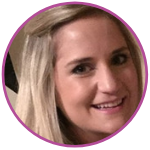Maybe you’ve just graduated and are looking for your first job in forensics, or maybe you’re just starting work as an analyst. Either way, trying to find your footing can be tough. That’s why we’ve asked our ISHI 29 speakers to share some pearls of wisdom for those just starting out in the field of forensics. Do you have tips to add? Join the conversation on our Facebook and Twitter pages!
 Kyleen Elwick, Sam Houston State University
Kyleen Elwick, Sam Houston State University
“Definitely make connections and talk to everyone you can. Networking is awesome and could provide future job opportunities. Talking to vendors that have interesting products could start potential collaborations as well.”
 Tim Augsback, Ohio Bureau of Criminal Investigation
Tim Augsback, Ohio Bureau of Criminal Investigation
“I would encourage newer scientist to avoid underestimating the importance of good communication skills. You use them quite a bit when interacting with other law enforcement agencies or testifying in court.”
 Kate Stevenson, Institute of Environmental Science and Research Ltd (ESR)
Kate Stevenson, Institute of Environmental Science and Research Ltd (ESR)
“Ask questions if ever unsure or if you need advice/clarification. I have been able to extend my own knowledge through asking questions and learning information from those more experienced.”
 Lynndsey Simon, Columbus Police Forensic Services Center
Lynndsey Simon, Columbus Police Forensic Services Center
“For those just finishing college and looking for a job in the forensic field, I would say don’t be afraid to expand your search to laboratories in other states. It may be difficult to find exactly what you’re looking for if you narrow your search parameters. There are a limited number of jobs available, so it may take a while but don’t be discouraged. After you find a forensic job, don’t be afraid to ask questions. If you’re unsure of what to do, ask your supervisor/another analyst. There are many times I will ask for someone else’s opinion on a case, so collaboration with your co-workers is a big help. Communication is key!”
 Amelia Gamblin, Institute of Environmental Science and Research (ESR) Ltd.
Amelia Gamblin, Institute of Environmental Science and Research (ESR) Ltd.
“Keep your interests and studies broad. There are a range of forensic disciplines and areas that you can get into. And take on extra responsibilities and roles you never know where it might take you.”
 Greg Hampikian, The Idaho Innocence Project
Greg Hampikian, The Idaho Innocence Project
“Be the best scientist you can be. Major in a core science–don’t declare forensics, be a molecular biologist, a chemist, materials scientist, engineer, computer scientist, medical doctor. You can later on apply any of those to forensics. Forensics is not a science, it is an application of science. I think that young people can only want to major in what they have heard about. Unfortunately, there are not 20 shows based on Material Science, or one called Cell Biology Special Investigations Unit.”
 Julie Valentine, Brigham Young University
Julie Valentine, Brigham Young University
“Always ask questions and work hard to find the answers.”
“In college a forensic professor told me to take finance along with my science courses. I found this to be good advice as the entire world (and your forensic lab) works on business principles. I extend this to tell inspiring forensic scientists to take classes in business, even explore the idea of an MBA. On top of technical education, you will need to know how to create budgets, track metrics, make hiring and firing decisions, invest in technology, etc”
 Walther Parsons, Institute of Legal Medicine at the Medical University of Innsbruck
Walther Parsons, Institute of Legal Medicine at the Medical University of Innsbruck
“Education and training are key followed by learning and applying good laboratory practice and appropriate interpretation. Go to meetings, learn, network and practice.”
WOULD YOU LIKE TO SEE MORE ARTICLES LIKE THIS? SUBSCRIBE TO THE ISHI BLOG BELOW!
SUBSCRIBE NOW!



